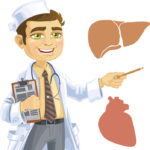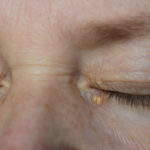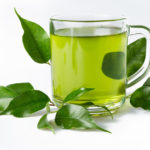
Previous
Liver Transplantation for Hepatitis C Patients

Next
Staying Positive with Liver Disease
How Cold Weather Impacts Your Liver
For those with liver concerns, the arrival of the winter months must come with an increased awareness of cholesterol levels. Learn what you can do as the temperature drops to help support the health of your liver.
As the association between high cholesterol and fatty liver disease becomes more apparent, efforts to reduce cholesterol levels are being increasingly examined in support of liver health. Those with liver concerns can make educated choices to minimize their risk of advancing fatty liver disease if they are aware of cholesterol’s variability. Research demonstrates that lifestyle modifications promoting low cholesterol are of additional importance to those with fatty liver disease during certain times of the year.
Cholesterol and Fatty Liver Disease
Although many have come to think otherwise, cholesterol actually performs many crucial body functions. A wax-like substance in the blood, cholesterol is critical for digesting dietary fats, building cell walls and manufacturing vitamins and hormones. Embedded in vehicles known as lipoproteins, cholesterol is transported throughout the bloodstream to be used or excreted by the body. It is when there is an excess of cholesterol that can cause health problems. Blood vessels can easily become clogged when an abundance of cholesterol-laden lipoproteins are present in the blood supply. This restriction of circulation can result in an accumulation of fat in the liver.
As reported in the September 2006 journal Cell Metabolism, researchers found that cholesterol accumulation in the liver depletes levels of the powerful antioxidant glutathione. This depletion of glutathione leaves the liver sensitive to inflammatory factors responsible for causing liver damage. The buildup of other forms of fat in the liver, including free fatty acids and triglycerides, were insufficient to spark the events leading to worsening liver disease.
Seasonal Cholesterol
Taking steps to control cholesterol is especially important during the fall and winter months for minimizing fatty liver disease progression. According to research published in the Archives of Internal Medicine, cholesterol levels vary according to the seasons. Over 500 healthy volunteers around the central Massachusetts area participated in this study by having their cholesterol levels analyzed quarterly over the course of a year. In addition to a total cholesterol workup, the volunteers were required to report their diet, amount of time they were exposed to sunlight, behavioral information and their physical activity during this time.
Researchers discovered that cholesterol levels were highest during the winter months and lowest during the summer months. The average total cholesterol level among the participants was 222 mg/dL in men and 213 mg/dL in women. During the winter months, cholesterol levels were increased in men and women by 3.9 mg/dL and 5.4 mg/dL respectively, with the men’s total cholesterol levels being the highest in December, and the women’s total cholesterol levels being the highest in January.
The increases in cholesterol found in the winter months were greater in those who already had high cholesterol levels and in women. Additionally, 22% more participants had total cholesterol levels over 240 mg/dL during the winter months, which are considered high according to National Cholesterol Education Program (NCEP) guidelines.
Why More Cholesterol in Winter?
The reasoning behind the seasonal variability in blood cholesterol levels remains unclear, especially because there was no significant difference in dietary intake among the participants. Researchers postulate that a decrease in exercise may be a contributor to the increase in cholesterol readings. Physical activity has been shown to directly lower cholesterol levels; and physical activity is typically greatest during the summer months and lowest during the winter months. Other possibilities for the relationship between season and cholesterol include:
- A decrease in sunlight during winter puts an increased demand on the body to produce vitamin D, a necessary fat-soluble vitamin made from cholesterol and sunlight. A decrease in sunlight may push the body to store more cholesterol than usual as a protective measure.
- In an effort to better insulate itself from frigid temperatures, the body may adapt to colder weather by altering its fat composition. An increase in blood cholesterol may be part of this hypothetical process.
The Impact on Fatty Liver Disease
The seasonal variation in cholesterol levels could lead to more progression of fatty liver disease in the winter. In addition to resisting dietary cholesterol calamities, anyone concerned with a fatty liver can bolster their exercise routine when it’s cold outside. So when ice and snow prevent a trip to the gym or a morning run, get creative with exercise to keep cholesterol from putting any additional strain on your liver.
www.cholesterol.about.com, Seasonal Changes Could Alter Cholesterol Levels, Jennifer Moll, MS, About, Inc., May 2006.
www.medicalnewstoday.com, Cholesterol levels fluctuate with the seasons high in winter low in summer, MediLexicon International, Ltd., April 2004.
www.sciencedaily.com, Cholesterol Implicated In Progression Of Fatty Liver Disease, Cell Metabolism, September 16, 2006.









